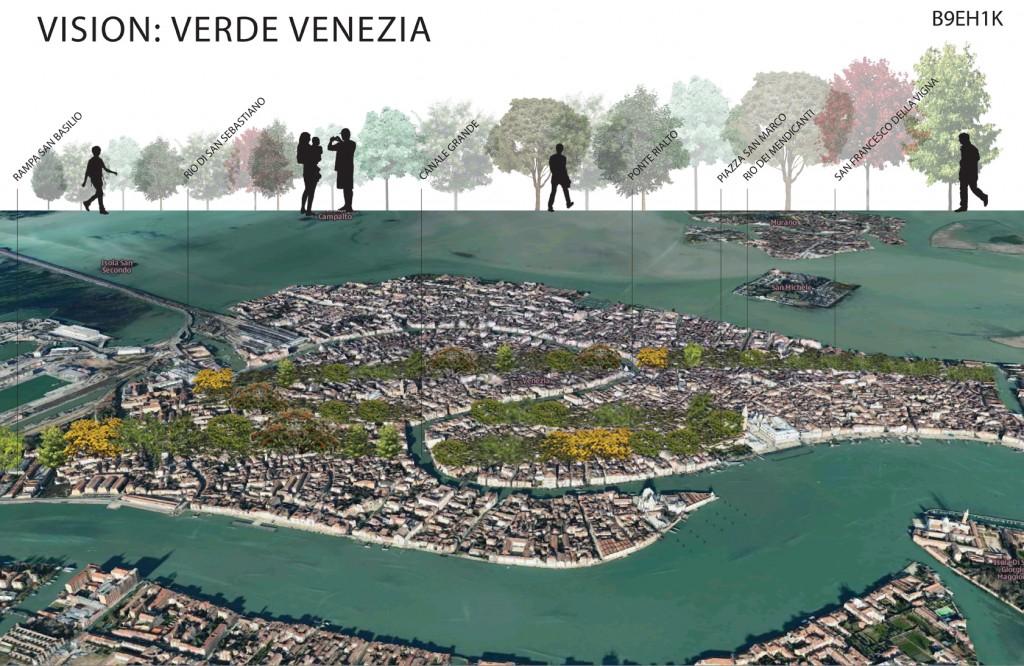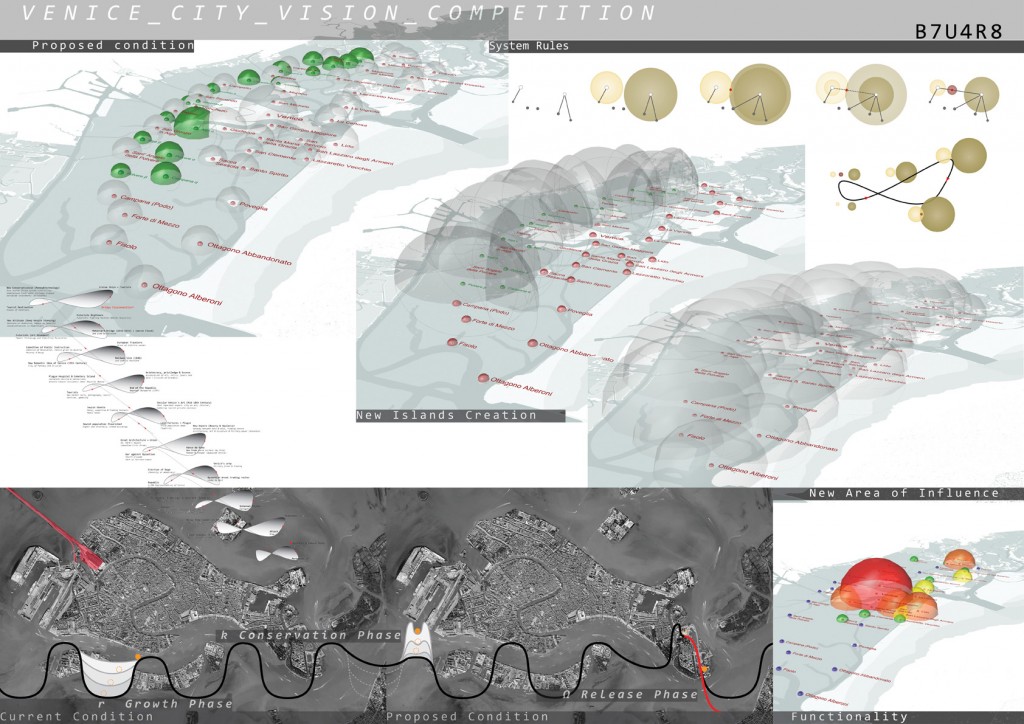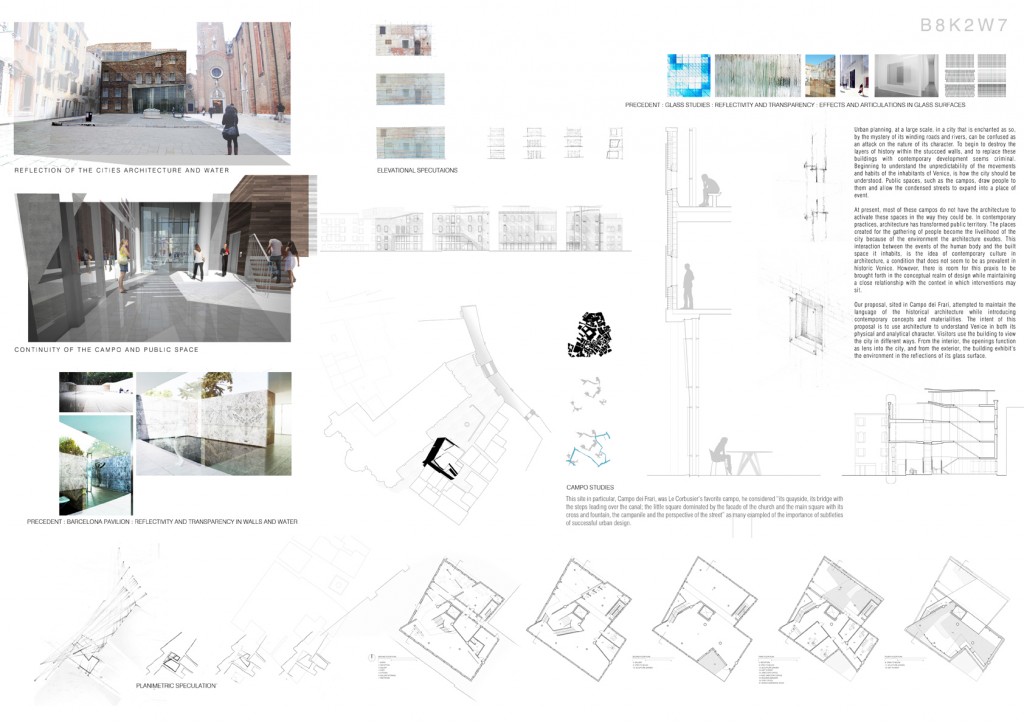Info:
Title: Venice - Code: B8K2W7Contest: Venice / 2011
By: H. L. Bittner / I. Svilokos
Views: 2959 Likes: 0
Votes:
BJARKE INGELS6 NERI OXMAN5 ELENA MANFERDINI4 MARIA LUDOVICA TRAMONTIN5 BOSTJAN VUGA44.8
Venice
“Venice City Vision” allows us to propose how the future image of Venice may be constructed. Our proposal focuses on a single instance that acts as a model to how we can sensitively insert contemporary architectural practices into a strictly historic environment. We do not want another row of images, but we think that some of the history of the city can be retained, re-conceptualized, and integrated into a contemporary design of the city. Urban planning, at a large scale, in a city that is enchanted as so, by the mystery of its winding roads and rivers, can be confused as an attack on the nature of its character.
To begin to destroy the layers of history within the stuccoed walls, and to replace these buildings with contemporary development seems criminal. Beginning to understand the unpredictability of the movements and habits of the inhabits of Venice, is how the city should be understood. Public spaces, such as the campos, draw people to them and allow the condensed streets to expand into a place of event.
At present, most of these campos do not have the architecture to activate these spaces in the way they could be. In contemporary practices, architecture has transformed public territory. The places created for the gathering of people become the livelihood of the city because of the environment the architecture exudes. This interaction between the events of the human body and the built space it inhabits, is the idea of contemporary culture in architecture, a condition that does not seem to be as prevalent in historic Venice. However, there is room for this praxis to be brought forth in the conceptual realm of design while maintaining a close relationship with the context in which interventions may sit.
Our proposal, sited in Campo dei Frari, attempted to maintain the language of the historical architecture while introducing contemporary concepts and materialities. The intent of this proposal is to use architecture to understand Venice in both its physical and analytical character. Visitors use the building to view the city in different ways. From the interior, the openings function as lens into the city, and from the exterior, the building exhibit’s the environment in the reflections of its glass surface.
Info:
Title: Venice
Time: 7 giugno 2011
Category: Venice
Views: 2959 Likes: 0
Tags: Architecture , Arts , Education , Frari , Industrial Revolution , John Ochsendorf , Scripps Institution of Oceanography , Venice








